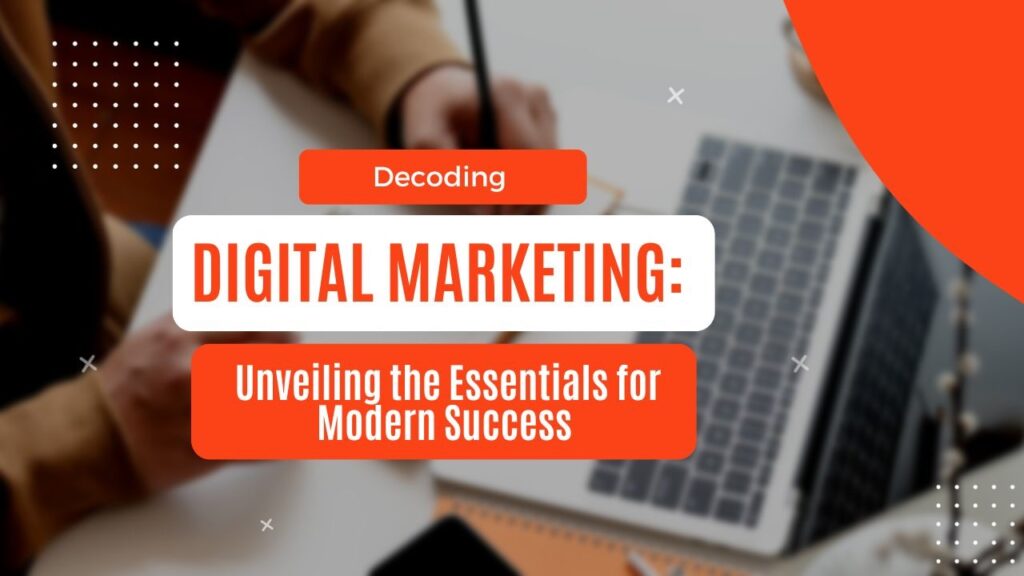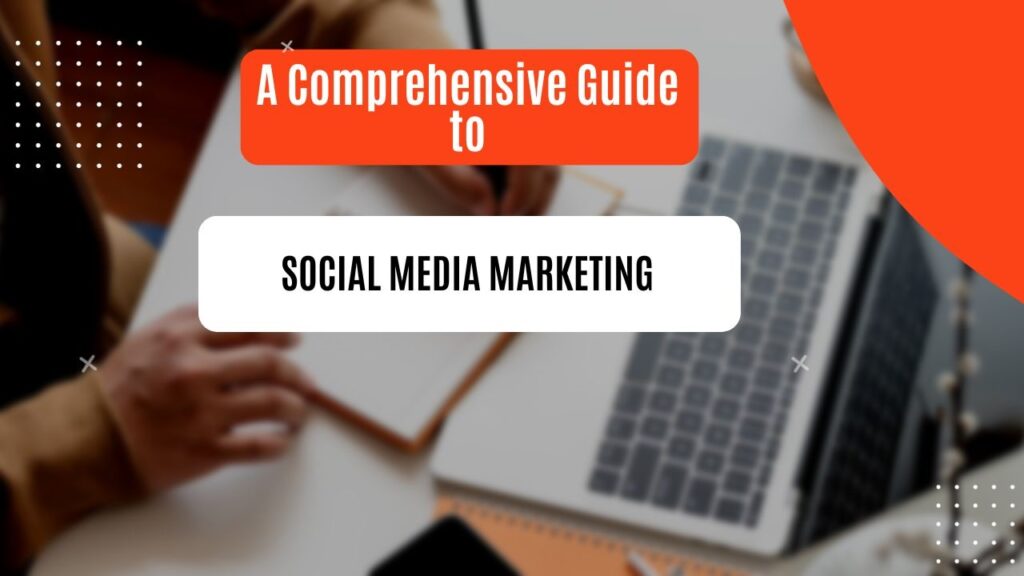In the digital marketing era, Content Marketing has emerged as a cornerstone for building and maintaining a robust online presence. It is a vital component of Digital Marketing. It revolves around the creation and dissemination of engaging and informative content to attract, educate, and retain a specific target audience. The content produced is tailored to meet the audience’s needs and preferences, establishing a connection that goes beyond mere transactional relationships. Blogs, podcasts, videos, and social media posts are common mediums through which businesses deliver their content. The overarching goal is to provide value, positioning the brand as an industry thought leader and fostering a sense of loyalty among the audience. Through compelling storytelling and educational material, content marketing not only drives organic traffic but also plays a pivotal role in lead generation and customer retention. As consumers increasingly seek authentic and meaningful interactions with brands, content marketing stands out as an essential strategy for businesses aiming to cultivate a strong digital presence and stay relevant in the ever-evolving landscape of online communication.
Multifaceted Strategy
Content Marketing is a strategic approach that centres on creating and distributing valuable, relevant, and consistent content to attract and retain a clearly defined audience. It is a multifaceted strategy that goes beyond overt advertising, focusing on providing information, entertainment, or utility to the audience. The content can take various forms, including blog posts, articles, videos, infographics, and more. The primary goal of content marketing is to establish trust, build brand authority, and nurture long-term relationships with the audience. By consistently delivering high-quality and valuable content, businesses position themselves as industry leaders and go-to sources for information. Content marketing is closely tied to SEO, as search engines reward websites with relevant and valuable content. It also plays a crucial role in the customer journey, guiding prospects through the awareness, consideration, and decision stages. Successful content marketing strategies involve understanding the target audience, conducting thorough keyword research, and creating content that resonates with the audience’s needs and preferences. Moreover, content marketing extends to various digital channels, including social media, email, and other online platforms, amplifying its reach and impact.
Engaging with Audience
The digital landscape has transformed the way businesses engage with their audience, and content marketing has emerged as a pivotal strategy for establishing a strong online presence. By creating and distributing valuable, relevant, and consistent content, businesses can attract and retain a clearly defined audience, positioning themselves as industry leaders and go-to sources for information. The multifaceted nature of content marketing, which encompasses various forms of content such as blog posts, articles, videos, and infographics, allows businesses to provide information, entertainment, or utility to their audience, fostering long-term relationships and building brand authority. This strategic approach not only drives organic traffic but also plays a crucial role in guiding prospects through the awareness, consideration, and decision stages of the customer journey. Additionally, content marketing is closely tied to SEO, as search engines reward websites with relevant and valuable content, further amplifying its impact and reach.
Target Audience
Successful content marketing strategies are rooted in a deep understanding of the target audience and their needs and preferences. By conducting thorough keyword research and creating content that resonates with the audience, businesses can ensure that their content is not only seen but also genuinely appreciated and acted upon by their target audience. Moreover, content marketing extends to various digital channels, including social media, email, and other online platforms, amplifying its reach and impact. By leveraging these digital channels, businesses can maximize the visibility and impact of their content, reaching a wider audience and fostering meaningful interactions with their target audience.
Content Marketing Strategies
Content marketing encompasses a wide array of strategies and tactics that are designed to engage and nurture an audience. These strategies include:
Blogging:
Maintaining a blog is a fundamental aspect of content marketing. Blogs allow businesses to share valuable information, industry insights and thought leadership pieces with their audience. They also serve as a platform for search engine optimization (SEO) efforts, as fresh, relevant content is favoured by search engine algorithms.
Social Media Content:
Social media platforms are a key channel for content distribution. Businesses can share blog posts, infographics, videos, and other content to engage their audience and drive traffic to their website.
Email Marketing:
Email is a powerful tool for content distribution. By sharing valuable content with their email subscribers, businesses can nurture leads and drive conversions.
Video Content:
Video has become an increasingly popular form of content. Businesses can use video to share product demonstrations, customer testimonials, and other engaging content with their audience.
Infographics and Visual Content:
Infographics and other visual content are highly shareable and can be used to distill complex information into an easily digestible format.
Ebooks and Whitepapers:
Businesses can create in-depth, valuable content in the form of ebooks and whitepapers. These resources can be used to capture leads and provide value to their audience.
Measuring Content Marketing Success
Measuring the success of content marketing efforts is crucial for understanding what is and isn’t working. Key performance indicators (KPIs) for content marketing include:
Website Traffic:
Businesses can measure the amount of traffic their content is driving to their website.
Engagement Metrics:
Engagement metrics, such as time on page, bounce rate, and social shares, can provide insight into how well content is resonating with the audience.
Lead Generation:
Content marketing can be a powerful lead-generation tool. By tracking the number of leads generated from content, businesses can understand the impact of their efforts.
Sales and Conversions:
Ultimately, the goal of content marketing is to drive sales and conversions. Businesses can measure the impact of their content by tracking the number of conversions it drives.
Future of Content Marketing
The future of content marketing is poised to be significantly influenced by emerging technologies like artificial intelligence (AI) and machine learning (ML). These advanced technologies offer unprecedented opportunities to create highly personalized content experiences for users, revolutionizing how businesses engage with their audiences. AI and ML can analyze vast amounts of data to identify patterns and trends, enabling marketers to understand their audience’s preferences, behaviors, and needs with greater precision. This level of insight allows for the creation of content that is not only more relevant but also more engaging, fostering deeper connections between brands and their customers.
One of the most transformative aspects of AI and ML in content marketing is the automation of content creation and distribution. AI-powered tools can generate high-quality content at scale, from blog posts and social media updates to personalized email campaigns and product recommendations. These tools can also optimize content distribution by determining the best times and channels to reach specific audience segments, ensuring that the right message is delivered to the right people at the right time. This automation not only enhances efficiency but also frees up valuable time for marketers to focus on strategy and creativity, ultimately driving better results.
By leveraging AI and ML, businesses can gain deeper insights into their audience’s preferences and behaviors, allowing them to create more tailored and relevant content. This tailored approach can lead to higher engagement and conversion rates, as content that resonates with the audience is more likely to elicit positive responses and drive action. Additionally, the ability to deliver personalized content experiences can significantly enhance the overall user experience, building brand loyalty and trust. As AI and ML technologies continue to evolve, they will undoubtedly play a central role in shaping the future of content marketing, enabling businesses to stay ahead of the curve in an increasingly competitive digital landscape.
Personalization
Personalization is a key trend in content marketing. By creating content that is tailored to the specific needs and preferences of their audience, businesses can create a more engaging and relevant user experience. This can lead to higher engagement and conversion rates, as well as a more positive overall user experience.
Voice Search
The rise of voice search is also likely to have a significant impact on content marketing. As more and more users turn to voice search to find information, businesses will need to create content that is optimized for voice search. This can include creating content that answers specific questions, as well as creating more conversational content.
Interactive Content
Interactive content is also likely to play a larger role in content marketing in the future. This can include things like quizzes, polls, and other interactive elements that allow users to engage with content more actively. This can lead to higher engagement and conversion rates, as well as a more positive overall user experience.
In conclusion, content marketing is a powerful tool for businesses seeking to engage and nurture their audience. By creating and distributing valuable, relevant, and consistent content, businesses can attract and retain a clearly defined audience, drive organic traffic, and guide prospects through the customer journey. The future of content marketing is likely to be shaped by emerging technologies such as artificial intelligence and machine learning, as well as trends like personalization, voice search, and interactive content. By staying ahead of these trends, businesses can position themselves for success in the ever-evolving digital landscape.
Conclusion
Content marketing, in its purest form, is the art of building bridges with your audience. It’s about creating and sharing valuable, relevant, and consistent content that attracts, engages, and ultimately, converts prospects into loyal customers. It’s not about bombarding people with sales pitches; it’s about providing genuine value, sparking conversations, and building lasting relationships based on trust and mutual understanding.
So, as you navigate the ever-evolving landscape of digital marketing, remember this: Content is not just king; it’s the kingdom. Invest in crafting high-quality, engaging content that resonates with your target audience, and you’ll be well on your way to building a thriving online community, establishing thought leadership, and achieving sustainable business growth. The power of content marketing lies in its ability to educate, inspire, and ultimately, convert – use it wisely, and watch your brand flourish.





